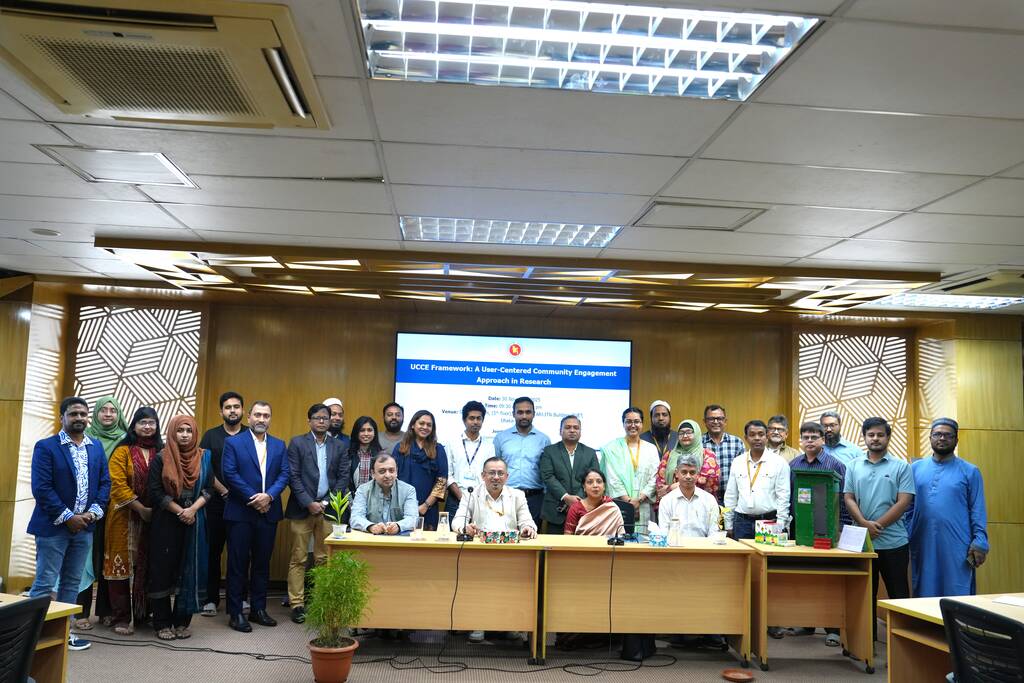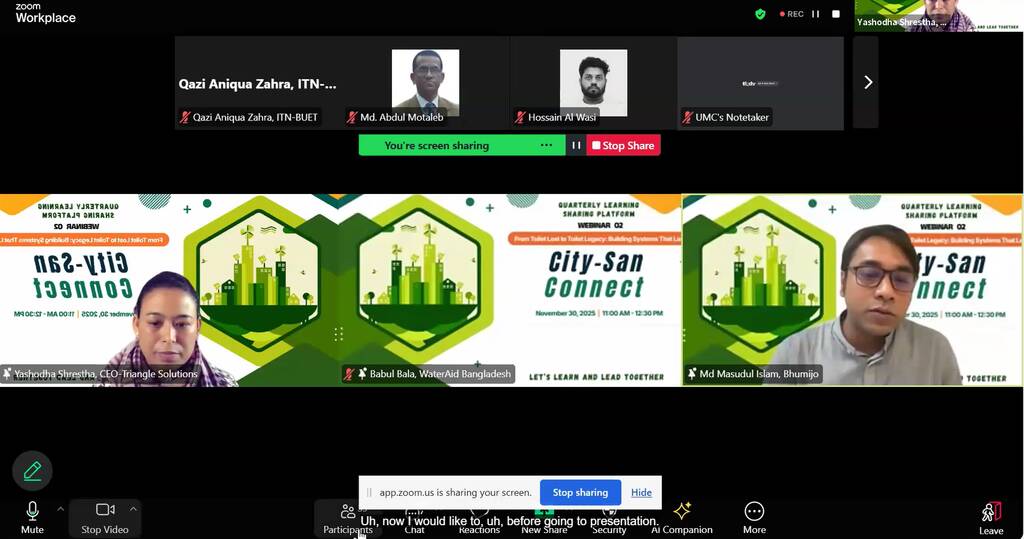Rajshahi University of Engineering and Technology (RUET), in collaboration with ITN-BUET, organised an orientation workshop centred on Faecal Sludge Management (FSM). Themed “A Solution to Sanitation Problems in Cities,” the workshop’s objective was to introduce the undergraduates of RUET’s Civil Engineering Department to FSM principles. Approximately 160 RUET students participated in the event, gaining valuable insights into addressing urban sanitation challenges.
The six-day workshop featured diverse sessions and concluded with a full-day exposure visit to a Faecal Sludge Treatment Plant (FSTP) in Chapainawabganj, offering participants hands-on experience. Throughout the event, ITN-BUET contributed invaluable insights and expertise, enriching participants’ understanding of collaborative approaches to tackling urban sanitation issues.
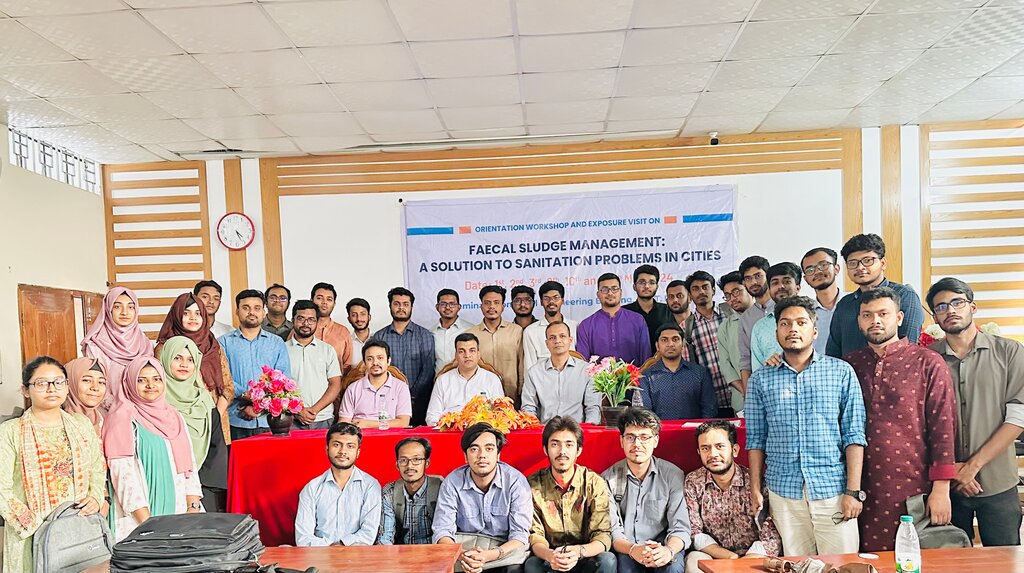

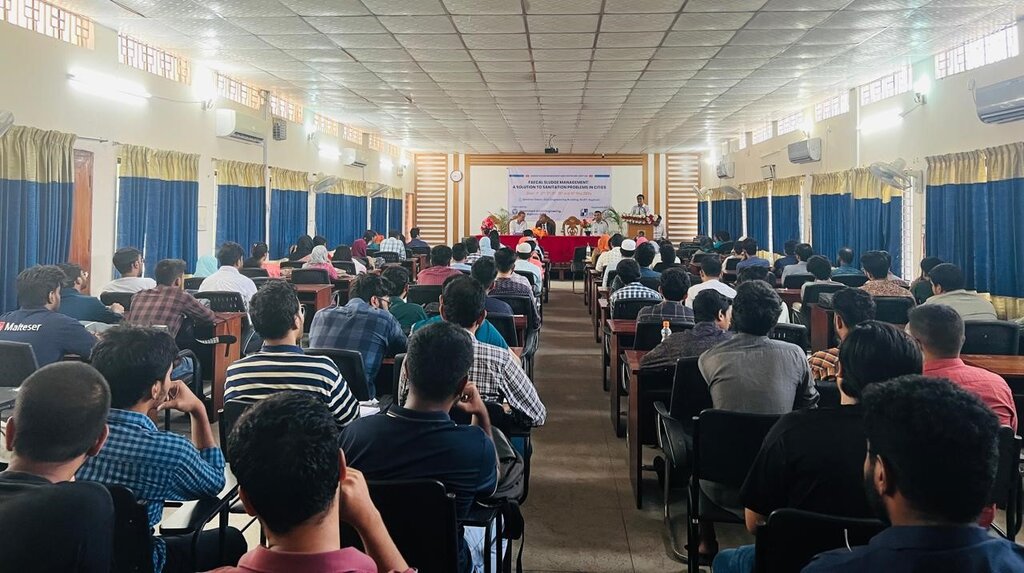
Professor Dr. Eng. Md. Jahangir Alam, the Vice-Chancellor of the University, honored the occasion as the chief guest, officially commencing the event with his presence. Addressing the audience, the Vice-Chancellor inspired the students to utilise the knowledge gained from the workshop to contribute to the vision of a Smart Bangladesh. He stressed collaborative research between students and faculty to tackle challenges and advance the nation. He also assured financial support for their research.
Prof. Dr. Md. Kumruzzaman Ripon, the Dean of the Faculty of Civil Engineering, attended as a special guest, while Dr. Md. Mahmud Sazzad, Head of the Civil Engineering Department, chaired the event. Prof. Dr. Md. Zahanggir Alam coordinated the workshop. Additionally, Professor Dr. Anupam Chowdhury, Professor Dr. Md. Niamul Bari, Executive Engineer from DPHE in Chapainawabganj, Mr. Amit Kumar Sarkar, and Training Specialist of ITN-BUET Mr. Subrata Paul were present as resource persons.
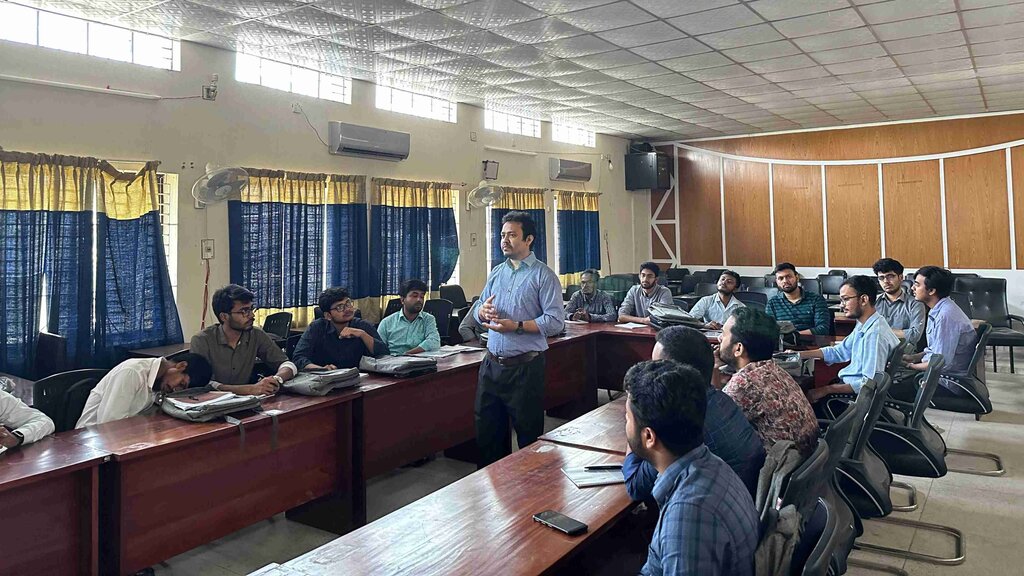

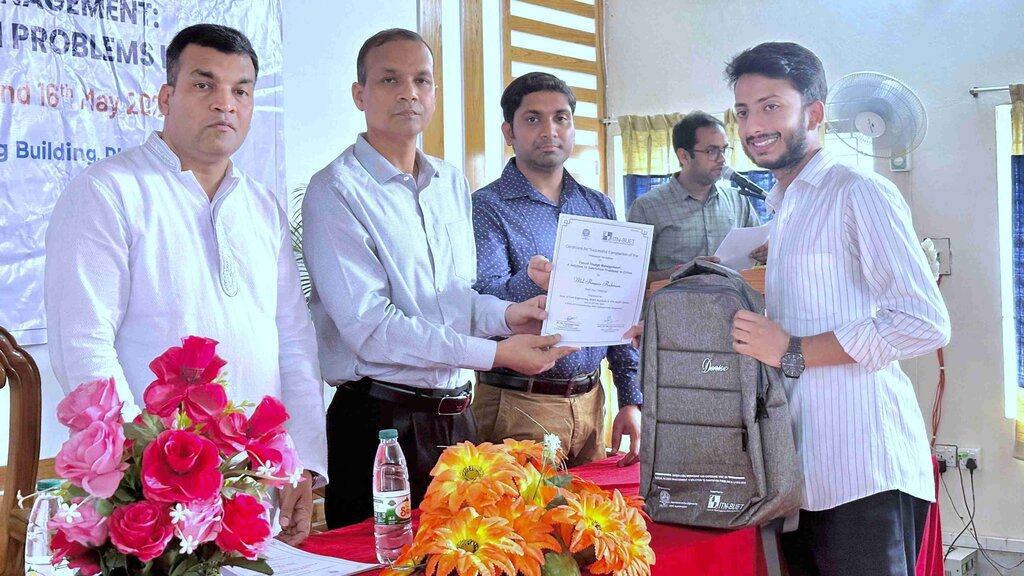
In an inspiring speech, the special guest highlighted the vital role of workshops and field visits, stressing the value of hands-on experience alongside theoretical education.
Workshop participant Mst. Fawzia Yeasmin Sabrina expressed satisfaction, stating, “I never imagined finding faecal sludge management so interesting and applicable to daily life.” Similarly, Md. Jubaer Hossain remarked, “This workshop has broadened my perspective and underscored the significance of maintaining proper sanitation practices.”
Dr. Md. Mahmud Sazzad concluded the workshop, saying, “The workshop is not just about learning; it is about inspiring and igniting a desire for sustainable sanitation practices.” The workshop’s outcome extended beyond mere academic learning. It empowered students to become proactive change agents in promoting sanitation and sustainable development in their communities and beyond.



